
English digital program
Berkeley Repertory Theatre presents the West Coast premiere of
English
By Sanaz Toossi
Directed by Mina Morita
Mar 31–May 7, 2023
Peet’s Theatre
This show has no intermission.
We acknowledge that Berkeley Rep sits on the unceded ancestral lands of the Ohlone people.
Discover English | Meet the Creative team | Meet the Company
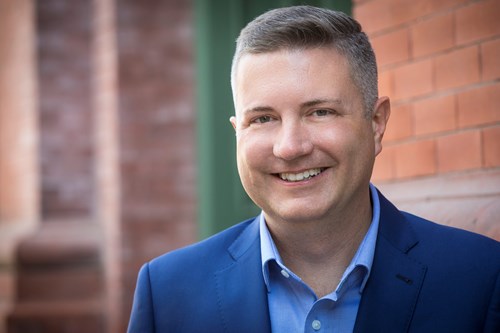
Welcome to Berkeley Rep and our production of Sanaz Toossi’s English! With wit, comedy, and heart, English explores the power we give to language and the intersection of language and identity. I had the pleasure of seeing the world premiere of this play in New York City last spring in a joint production of Atlantic Theater Company and Roundabout Theatre Company. That production resulted in English receiving the Obie Award for Best New American Play earlier this year. True to Berkeley Rep’s mission to entertain and challenge audiences, provoke civic engagement, and inspire people to experience the world in new and surprising ways, we are thrilled to give this acclaimed play its West Coast premiere.
Just as we enjoy one of this season’s dramatic highlights and approach the thrilling and much anticipated Let the Right One In and Tony Taccone’s directorial return for the world premiere of Ari’el Stachel’s Out of Character, the seeds have been planted for the exciting 2023/24 season, which will be announced in mid-April. Next season, which is sure to surprise, delight, and entertain, features some of the most extraordinary artists working in the theatre field today. You’ll experience a dynamic, ambitious mix of contemporary comedy, engaging and thought-provoking drama, and magnificent music, including another Broadway-bound musical.
We invite you to join us as a subscriber when subscriptions go on sale April 12. As a subscriber, you are guaranteed your seats before the general public and at huge savings. A Full Season subscription gets you the best seats at the best prices, saving you up to 33% off individual ticket prices and often more – it’s like getting two shows free. You also gain priority access to special events like last December’s Remember This: The Lesson of Jan Karski featuring Academy Award nominee David Strathairn. Plus, you receive a host of exclusive perks like free advance ticket exchanges, one free upgrade to a more expensive seat or section, and more to make your theatregoing easy, flexible, and fulfilling.
We have always valued our audiences, but the past few years have made us appreciate even more the magic that happens when great artists and audiences come together in the same room to create live theatre. Sharing an amazing night out with friends, family, or loved ones feels even more precious, too, and a subscription helps you get these special dates on the calendar. Join us as a subscriber to guarantee yourself the joy, the inspiration, the connection, the transformative opportunities that Berkeley Rep offers to you and the community – all through the lens of our core values of Storytelling, Rigor, Innovation, Equity, Discovery, and Sustainability.
It’s an exciting time to be a part of Berkeley Rep, and we thank you for joining us today.
Enjoy the show!
![]()
Tom Parrish
Managing Director
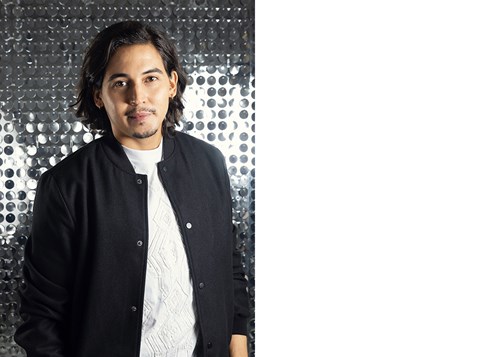
MARJAN: Why do we learn language?
GOLI: Um. To say if we are hungry.
MARJAN: Yes! To speak our needs. Why else?
OMID: To bring the inside to the outside.
MARJAN: Yes. To speak not only our needs but our wants. To speak our soul. To speak. And to... listen. To the insides of others.
“English only,” writes the instructor on a whiteboard at the top of the play, and English only is what you will hear throughout the course of Sanaz Toossi’s appropriately titled English. Set in a TOEFL classroom in Karaj, Iran in 2008, a year before the start of the Iranian Green Movement, the characters in this play gather to learn a new language in hopes of passing the Test of English as a Foreign Language, or TOEFL. While English is the sole language we hear spoken, the play and these characters are actually toggling back and forth between the foreign English and their native Farsi. As Sanaz states in her script, “We will be hearing English. But in the world of the play, they are speaking Farsi.”
In a feat of linguistic acrobatics and dramatic convention, the actors in the play switch from accented English when they are trying to communicate in the learned language, and unaccented English when they slip back into speaking Farsi. To achieve this dexterous lingual and aural world of sound, polyglot actor and dialect coach Ana Bayat was brought onto the creative team to support the work of the actors and director, Mina Morita. Over 40 hours of specific rehearsal time went in to crafting the varying levels of accent each character is scripted to have, from light and sweet, to thick, to very thick. This attention to the study of vowels and the placement of sounds in the mouth, coupled with the director and actors’ rigorous interrogation of key character details such as age, class, and education, plus the characters’ intentions and actions behind each line, beat, and moment merge together to bring Sanaz Toossi’s play to life.
Sahar Bibiyan, who plays the role of Marjan, speaks about the nature of switching between accents. She says, “It feels like when I came to this country, I was learning English, but living in Farsi at home. There was a time where I started dreaming in English. I would have American dreams, and it felt like this magical place that I lived in, in my head, but I could feel that shift in my body.” Language, like culture, lives in both the mind and the body, and while many rely on spoken languages to communicate, there is much to infer from the body as a communicator of meaning and connection. Physical behavior such as facial expression, body posture, gesture, eye movement, touch, and the use of space are integral to communicating complex ideas, especially when language fails you, as is often the case with many of the characters in the play.
There are over 7,000 living languages worldwide, with English being the most spoken language globally followed by Mandarin Chinese, Hindi, and then Spanish. In the United States alone there are over 350 languages spoken, making it one of the most linguistically diverse countries in the world. While English is the predominant language spoken in the United States, there is no official national language here, meaning the federal government allows Americans to speak any language they want, a right protected in the Constitution.
Given the human desire to communicate, connect, and be understood, we invite you to spend this time listening to the insides of these characters. To be transported to Karaj, where we can hear them speak their souls.
– David Mendizábal
Photo of David Mendizábal by Brandon Nick
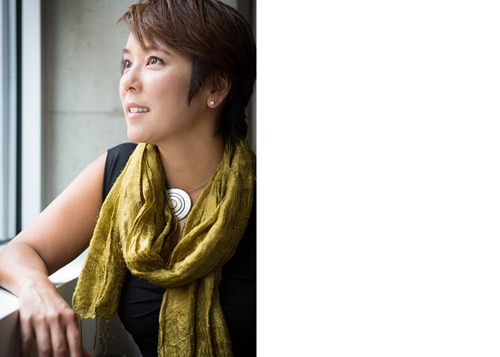
Mina Morita returns to Berkeley Rep to direct English by Sanaz Toossi. She spoke with Karina Fox, Berkeley Rep’s associate casting director and artistic associate, about her relationship with Berkeley Rep, the Bay Area, and her approach to directing.
Karina Fox: Hello Mina! Thank you for finding the time to talk with me on a busy rehearsal day.
Mina Morita: Of course. I’m happy to have this conversation!
Can you tell me a little bit about your relationship with Berkeley Rep and how that came to be?
I was selected for the Bret C. Harte directing internship in 2008 and was so grateful to the Harte family for creating this opportunity to carry out Bret’s legacy, and to the artistic team for selecting me to be in the position. Back then the internship-turned-fellowship included working with former Artistic Director, Tony Taccone, and would typically last for two years. The time allowed me to learn the cadence of the organization over two seasons and allowed us to build a strong relationship. So, each season, I was gleefully involved in assisting about five productions.
Wow! That’s incredible.
I feel like I was at the theatre 14 hours a day and got to work with incredible directors and people, particularly with Les Waters (former associate artistic director at Berkeley Rep) and with Tony. It was a remarkable time in my life.
And after that they created the position of artistic associate just for you?
Yeah, when I finished the fellowship Tony gave me a call and said, “Hey, I have a position for you. What do you think? We’re making this position. It’ll be to continue working with me and to help launch The Ground Floor.” So, I rejoined the team and then it was a year of prep getting ready to launch the first year of the Ground Floor.
Well, can I just say that as the current artistic associate at Berkeley Rep, I am honored to speak to the originator of the role! Would you say that being hired in this position is what kept you in the Bay Area?
I was going to stay in the Bay Area if I didn’t get into grad school, and I had only applied to one school. So, I was very clear about what my choices were and what I wanted to do. I was always very committed to working in community, in the Bay. I was already on the board of Shotgun Players. I had been a founding member of Bay Area Children’s Theatre, including working as an interim executive director there for several months. I was participating with Ferocious Lotus as Lily Tung Crystal, the founding artistic director, was starting that up. I was engaged with the Asian American Theater Company in various ways and was directing freelance. So, I started to work in many different theatres around the Bay. I left Berkeley Rep in 2015 to work as the artistic director at Crowded Fire, where I currently serve as the director of artistic & artist development in a shared leadership model.
You have such deep roots here. Can you speak a bit about what being a Bay Area artist means to you?
It’s interesting, because when you’re inside of a community you don’t necessarily think about what’s unique about it — you think about what you cherish about it. What I loved is there is a strong sense of generosity and commitment to what was happening here. We were building organizations and intentionally making choices in service to artists to see how they would pay off over a decade. It wasn’t just for the next year or the next couple of months. It was to see what could be changed for both those who were currently working, and those who are coming next.
I would also say the qualities that I love about our community are a sense of experimentation, and of exploration. There’s an expansiveness. It has to do with what San Francisco was and what Oakland is. There’s this multifaceted way into the art. It wasn’t categorized as theatre, dance, poetry, and music, for example. It was about crossing over and pulling impulses from each of these areas of practice. This approach is growing. The hyphenate or multi-hyphenate artist is very present in the work that’s coming out of Oakland. There’s some beautiful and powerful work that’s happening, and there is work that seeks to make behavioral change happen and create awareness of the problematic constructs in our culture.
Speaking of change, when talking with Johanna Pfaelzer, our current artistic director, about why you were selected to direct English, she mentioned that in 2020 when the theatre community went through a cultural shift and was asked to take a step back and reevaluate our practices and behaviors, you really stepped up as an artistic leader in that conversation. I’ve spoken to countless Bay Area artists about you, and again, they always compliment your artistry, and they really compliment your heart and the way that you can create a safe and loving but rigorous environment.
I really appreciate that. That’s very kind and generous of you and of Johanna. Spending the past eight years at Crowded Fire allowed me to explore, to try wild things, and to become a stronger leader and artist. I was getting strong, so that when it was time to move through this pandemic, it gave me confidence and fearlessness that I still carry. I wish that for everyone — an artistic home where they can bloom and reach their full potential. So that when they step into these other spaces where they’re challenged, where their value is questioned, they are confident enough in themselves to move through that fire.
Crowded Fire artistically taught me to seek out the things that scared me, to look for the ugly as much as for the beautiful, and to uncover the underbelly in our experience and beliefs — the things we try to cover up and protect.
I love that! Can you speak to how it informs how you approach your work?
I try to create a space where we can wrestle with hard ideas as artists. Where we can feel safe saying things that are not necessarily easy. We can also fight about things. There might be five opinions about one thing. I know often in theatre having too many opinions weighs down a process and makes things take longer, but I think that it’s a healthier way to work because then you’re really turning over that diamond and looking at every single side. That results in something way deeper in our work, and on stage. Often, I find that things, while they might be dynamic and active on stage, can feel cold. I’m not drawn to cold work that is too linear or so clear that it takes away some of the questions underneath it. I also come from a visual arts background and was originally going to be an illustrator. I come from a family of artists who are visual artists, painters, cartoonists, graphic designers and so I think a lot about the world of the play first and how we shape what is happening on stage from there.
What kind of work have you been gravitating towards lately?
There are two aspects of work that I’m really drawn to. It’s either the very intimate piece that is complex and subtle, or it’s opposite, where the piece is an event with multiple layers of design and expression. I want to explore theatre that has a ferocity inside of it — there’s anger, there’s sorrow. So, the opposite sides of a range. I also love pieces that implicate the audience in some way, like the work of Young Jean Lee or how we set up a concert, like for parts of our production of Vietgone at the Guthrie. It allowed the audience to be involved in the event, especially in a 1,000-seat house.
I’m curious to hear what your first thoughts were when you read English, and how you connected with the play and characters?
There’s a Marjan quote that really stuck with me. “If you are here to learn English, I am going to ask that here in this room we are not Iranian. We are not even on this continent. Today I will ask you to feel and pull that you have to your Iranian-ness and let it go. Keep it outside the wall of this classroom. In this room we are native speakers. We think in English. We laugh in English. Our inhales our exhales, we fill our lungs in English....”
It made me think a lot about when people don’t feel like they belong in one place or another, and how they have to inhabit the spaces between. As a multiracial person who has family in at least two different countries, I thought a lot about what it is to belong. Where is home? What happens when you choose to leave where home is? Do you create another home? Is that a real home? What version of ourselves is our true self? I often start with questions. The more I live with this play, the more I realize how much exists under every sentence.
What I was struck by hearing it aloud for the first time with these actors was how funny it was.
It’s hilarious!
And it has a ton of heart! I feel like you walk away knowing every single one of those characters and caring about them.
Yeah, I agree. It surprises us with how delicate our existence is, and how much we want to belong. It leaves me with a sense of compassion for each character. Everybody has their own fragility no matter how strong they appear.
What does it mean to you to be returning to Berkeley as a director?
It’s incredible and I am deeply honored to be asked back to direct this play. There’s something about returning to a place where I have learned so much about who I am as an artist and as an artistic leader. I get to walk on the same stage and create something of deep value where other incredible artists whom I’ve worked with have created the same. So, it feels like a part of a continuum in a way that is profound. I want to say that I cherish my mentors and the people who supported me along the way. I really want to shout out Tony and Les and thank the Bret C. Harte family with whom I’ve stayed in touch. I’m just grateful to be able to return to this place.
We are so thrilled to have you here!
Thank you!
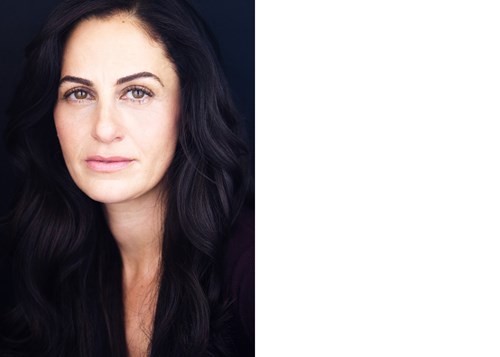
Berkeley Rep’s Associate Artistic Director, David Mendizábal, sat down with actor Sahar Bibiyan, known for her roles in Mr. Robot, Chicago Justice, and Iron Man, and who’s currently gracing the Peet’s stage as Marjan in English, to discuss theatre, the world, and what it means for her as an Iranian woman to be telling this story today.
David Mendizábal: Thank you so much, Sahar, for taking the time to chat with me. This feels like such a full circle moment, as I keep reflecting on when we met during the Atlantic Theater Company’s Middle Eastern Mixfest in New York City in 2018. It’s wonderful to get to reconnect years later and share this beautiful story, centered on the lives of Iranians. I’m curious, how does it feel for you to be working on this play right now with this company of artists in the Bay Area?
Sahar Bibiyan: Honestly, I feel like I’ve been holding my breath and I can finally breathe. There’s a sense of belonging. I’ve never quite experienced anything like this in my career. To sit in a rehearsal room and see all these ethnicities and backgrounds all in one room. I feel safe and I finally feel at home. I love theatre because there’s a real sense of community. And even though it sometimes feels fast, and everyone’s coming from different places, getting the job, and trying to focus, there is a sense of community that you don’t really experience when you do TV and film, unless you’re on a show for a long time.
And the way that our director Mina Morita works is so special. She’s gentle, kind, and thoughtful. We check in with each other when we come to rehearsal, and it’s not just the actors — everyone in the room takes part in this beautiful ritual. So, you’re your own person, but you’re also moving as a unit. You’re aware of what someone else is going through and holding space. It takes you out of your own head and ego. It’s refreshing.
In your experience as an actor in the theatre, how often have you found yourself in rooms like this, that are specifically telling Iranian stories?
To be honest with you, I have not done a ton of theatre and it’s been a lifelong dream for me. I was blessed enough to meet Pirronne Yousefzadeh [associate artistic director of The Playwrights’ Center in MN], who introduced me to the theatre community in New York. It was a missing piece in my artistic life. I remember thinking, “Oh my God, where has this been?” So, the few times I’ve had the opportunity to do theatre have been positive, and I felt honored to tell those stories. To have the opportunity to be the voice of, oftentimes, the voiceless fills me with gratitude.
Absolutely, the responsibility to bring light to communities who have not been in the spotlight is powerful. This play was written in 2017, specifically in response to the Muslim travel ban. Playwright Sanaz Toossi has spoken at length about wanting to highlight a community in a way that has not been portrayed in the media. Her desire in writing this play was to show a community’s humanity, and to process her own emotions of that moment in history through these characters. Thinking specifically about 2008, which was just before the Iranian Green Movement happened and when the events in the play take place, and 2017, when the play was originally written, can you speak about your own personal, political, and artistic reflections from that time?
I remember it so vividly. I was working on a TV set, and it was a Muslim-based episode. I was with a lot of cast members who were Middle Eastern, and I remember this sense of heaviness on set. I was very triggered, extremely triggered, because of my experience of coming to America as a child at the height of the Iranian Revolution in 1979. We came here thinking we were going to go back, but it wasn’t until after we arrived that we realized we were not going to be able to go back. We left everything. We packed a bag and left. And I remember at one point my father did go back to Iran, and when he tried to return to America it was during the hostage crisis, and all the visas got revoked. Somehow, he made it on the plane, and when he arrived at the airport in Los Angeles, the immigration officers would not allow him to stay. They were going to turn the plane back around. And I just remember having this feeling of knowing he’s here and he cannot get off the plane, and what it would mean for him to be sent back. I couldn’t process it as a child. It felt like my heart was being ripped out. My dad asked the immigration officer if he could just see his wife and children and by the grace of God, she allowed him to leave for a day. We were supposed to take him back. We got a lawyer who was able to seek political asylum for him and he was able to stay. But I was so incredibly triggered, because of the thought of all those people who thought they were going to come back home, and they were just stuck and being villainized for no reason.
And as an artist in that moment in 2017, specifically being on that set that was telling a story specifically about people from countries that were on a travel ban, there was a lot of confusion and all these misconceptions about what it is to be a Middle Eastern woman, and I think some part of me found my voice in that moment, because I was so pissed off. Luckily, it was a pretty good set to be on because they listened. And we got to really educate these people, and I think for the first time they listened because they saw what it felt like to be othered.
Wow, thank you for sharing that and acknowledging the labor of the individual having to correct a narrative that, in many ways, the media has been responsible for shaping. It makes me think about Sanaz and her reasons for writing this play. I’ve also been thinking a lot about the recent protests in Iran after the unjust murder of Mahsa Amini. It feels impossible not to examine the play today through the lens of the current “Woman, Life, Freedom” movement.
I’m curious what the conversation has been like in the room for you all? How does this play resonate now versus when it was originally written, or set?
We have been protesting for 44 years. As a kid I grew up with this ritual of protesting. We would go to the federal building in Los Angeles, and we would protest almost every weekend. So that’s nothing new for me, you know. I grew up constantly seeing the injustices happening in my country and to my countrymen and being angry and wanting to take part somehow. So that feeling’s always been there.
Being a part of English is a full circle moment for me. To be a part of telling an Iranian story at this moment in time feels more important than ever. When we are in rehearsal, I find myself thinking about Mahsa Jina Amini. I think about Nika Shakarami. I think about Sarina Esmailzadeh. I think about all the women, all these young women who are not with us anymore and I feel more of a responsibility, especially as an artist. The Islamic Republic punishes our artists and athletes on the national stage to repress free expression. They go after poets, actors, musicians, and public intellectuals to make an example out of them. So, to be on a stage and be able to freely express myself, when I know people in my country can’t, I feel a heavier sense of responsibility. And, to have women in a play who are smart and articulate. Women who have dreams and fears. To play a fully realized woman. It’s beautiful. It’s brilliant.
What do you wish to see more of in terms of how Iranians and Iranian Americans are being represented in the arts and media?
I want less victimizing. We’re not victims and we’re not exotic creatures. Iranian women are smart. They’re fierce. Before the Islamic Republic came into power, Iranian women were lawyers and court justices. We were everyday modern women living our lives, going to school, doing what people do here. Whatever picture has been painted by the media; you just have to erase it because it is far from the truth. I mean look at what is happening in Iran right now. This is a women-led revolution. I hope we stop equating the Islamic Republic to Iran. Those are two different things. There is The Islamic Republic, and then there’s Iran and the Iranian people. I would like multi-dimensional characters. For years and years, I felt like a prop, just a talking head. So, I just want an informed narrative. We are all complicated humans, and I think at the core of all of us are the same basic human needs, right? We want to be loved. We want to be happy. We want to have joy. We all have fears. Basic human needs don’t change because of the dirt you were born on. That is why I love this play so much. It is a universal story.
Yes, absolutely! For folks reading this who haven’t engaged as fully with the current events in Iran or don’t know where to begin looking, what would you say to those who want to get involved and want to support?
There’s so much you can do here in the States, including reaching out to your representatives. A lot of activists have worked hard to try and pass bills like the Mahsa Act. A simple phone call to your representatives asking them to put politics aside and pass bills that are action-based is a great place to start. We have to be the voice of the people inside Iran. There’s a lot of great people on Instagram that you can follow who are working tirelessly to put information in the public eye and to create simple steps to be involved in changing the future of Iran. You can follow Masih Alinejad (@masih.alinejad) and Nazanin Boniadi (@nazaninboniadi), Hamed Esmaeilion (@hamedesmaeilion), Gissou Nia (@gissounia) to name a few.
Thank you so much, Sahar, for taking the time to chat with me today and for these great resources!
By Katie Stevenson
When we first see the classroom where the play English will take place, the phrase “TOEFL: Test of English Foreign Language” is written on a whiteboard. The TOEFL is taken globally by millions of people a year looking to demonstrate a mastery of the English language for an academic purpose. Most people taking the TOEFL are hoping to attend university or graduate school abroad and are required to achieve a certain score in order to qualify for attendance. A higher score on the test can secure a scholarship or student teaching position, adding to its potential to make or break the accessibility of higher education for foreign students. While most countries only consider TOEFL in an academic context, some, including Australia and New Zealand, accept the test as a part of applications for migration and work visas. While not all the characters in the play are taking the course in order to pass the TOEFL, the test remains in the center of the space, a daunting reminder that the work done in this room will lead to either a passing or a failing score.
The three-hour-long TOEFL exam consists of four sections: reading, listening, speaking, and writing. Each section is scored from 1-30 for an overall score out of 120. While the minimum score for consideration for acceptance to U.S. schools varies from institution to institution, most universities require a score around 80-100. The test features advanced English words such as benign, perspicuous, augment, amiable, capacious, figment, opaque, and monolith; words that could easily trip up a native speaker. While there is no explicit vocabulary section, advanced words and phrases appear throughout the exam as comprehension is tested and evaluated. Difficult vocabulary is most likely to show up in the reading and listening sections, which consist of either reading or hearing a passage and answering questions on the content. As the answers for the reading and listening sections are easily marked “right” or “wrong,” they are graded by a computer.
In the two-part writing section, students respond to an “independent prompt” that asks a question that is to be answered with an opinion or argument, as well as an “integrated prompt” that asks a question about two outside sources, testing the ability to write critically about other texts. Most TOEFL independent writing prompts are centered around two contrasting options, all of which end with a phrase along the lines of “support your response with reasons and examples.” Test takers are given a situation and asked how they would respond, centering personal choice and past experiences. In the integrated section of the writing test, academic synthesis takes the place of opinion. The test taker has three minutes to read an academic passage before listening to a lecture on the same subject in order to write an essay summarizing both and showing the relationship between them.
Similar to the writing section, speaking is made up of independent and integrated questions. For the four speaking questions, students are given 15–30 seconds of preparation time before each response, which is expected to be 45-60 seconds long. Speaking, along with writing, requires a human scorer and, with that, invites space for interpretation and bias. As the character Elham spells out plainly: “If I have accent, bad TOEFL score.” Officially, the TOEFL does not dock points for an accent, but you can be penalized if you mispronounce words or cannot be understood. With the pressure to speak unaccented English comes the challenge of retraining your mouth and brain to make new sounds and follow new patterns, further distancing a person from the language they spoke growing up. Within the U.S., the quirks of language and sound in specific areas is accepted and understood as an aspect of growing up and living there: the slight twang of a southern accent, the dropped “r” of a Boston accent, or the high-gliding vowels of a New York accent. However, for the characters struggling with an Iranian accent in English, an accent is labeled embarrassing and threatens their chances at a successful TOEFL score.
While the TOEFL’s aim is strictly academic, the students in English have varying reasons for taking this class. From admission to graduate school to green card interview prep to being able to better communicate with family, each enters the space with a unique, personal reason to learn English under the umbrella of this looming standardized test. As our students grapple with the odd and immensely difficult language that the play is named after, they, with that note on the whiteboard, are continuously reminded that their progress to assimilate will be tested and scored, first by the TOEFL examiner and then by those in English-speaking countries who will be communicating with them. The pressure to lose an accent or express a culturally Western point of view in order to succeed in these tests, both on paper and in the real world, is ever present. This loss is felt intimately by Toossi’s characters as, in and out of the classroom, they grapple with what they must sacrifice of themselves in order to succeed in a new place.
Sanaz Toossi is an Iranian-American playwright from Orange County, California. Her plays include the critically acclaimed, award-winning English (co-production Atlantic Theater Company/Roundabout Theatre Company) and Wish You Were Here (Playwrights Horizons; Williamstown/Audible, released 2020). She is currently under commission at Atlantic Theater Company (Launch commission; Virginia B. Toulmin Foundation grant), Roundabout Theatre Company, Williamstown Theatre Festival, Manhattan Theatre Club, South Coast Repertory, and Oregon Shakespeare Festival (American Revolutions Cycle). In television, Sanaz recently staffed on Invitation to a Bonfire (AMC); A League of Their Own (Amazon); Five Women (Marielle Heller/ Big Beach); and sold an original idea, The Persians, to FX with Joe Weisberg and Joel Fields attached as executive producers. Sanaz is a member of Youngblood and the Middle Eastern American Writers Lab at the Lark, and an alum of Clubbed Thumb’s Early Career Writers’ Group. She was the 2019 P73 Playwriting Fellow, a recipient of the 2020 Steinberg Playwright Award, the 2022 recipient of The Horton Foote Award and, most recently, the 2023 recipient of the Best New American Play Obie Award. MFA: NYU Tisch

Mina Morita (she/her) is elated to be returning to Berkeley Rep, having served as the artistic associate and a founding member of its Ground Floor program. She is the director of artistic & artist development at Crowded Fire Theater Company. Directing credits include Vietgone (The Guthrie), Today is My Birthday (Yale Rep), Crazy Wisdom (Berkeley Rep), The Chinese Lady (Magic Theatre), Sisters Matsumoto (Center Rep), On Grace (Anna Deavere Smith), Both Your Houses (ACT’s MFA Program), Crowded Fire, Shotgun Players, Campo Santo, Ferocious Lotus, Just Theater, Playwrights Foundation, Playwrights Center, and Bay Area Children’s Theatre. Other: board president of Shotgun Players, interim executive director of Bay Area Children’s Theatre, Community Arts panelist for Zellerbach Family Foundation, guest artist at UC Berkeley and Stanford University, and Playwriting Australia. Awards: YBCA100, Theatre Bay Area Best Director, Theatre Bay Area’s Bay Area Impact, Beinecke Fellowship, Bret C. Harte Fellowship, and Lincoln Center Director’s Lab. In 2015, Mina was honored to share her story on TEDx, and in 2016, she was chosen as one of the YBCA100, for “asking questions and making provocations that will shape the future of culture.”
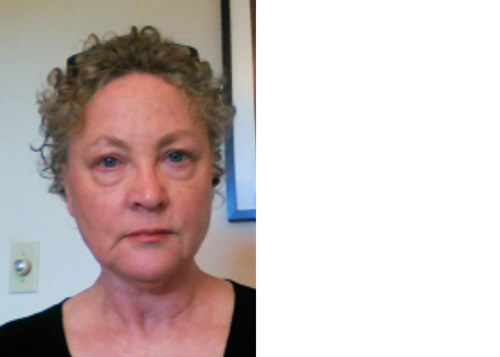
Annie is originally from London where she designed sets and costumes for Joint Stock Theatre Group, the National Theatre, and the Royal Court among many others. In the USA Annie has designed for The Public Theater NY, Arena Stage, BAM, Steppenwolf, The Guthrie, La Jolla, Long Wharf, among many others. As a designer based in the Bay Area, her work for Berkeley Rep includes Big Love, Concerning Strange Devices from the Distant West, Fêtes de la Nuit, Heartbreak House, In the Next Room (or the vibrator play) (also on Broadway for the Lincoln Center), The Mystery of Irma Vep, Passing Strange, Rita Moreno: Life Without Makeup, Suddenly Last Summer, Taking Over (also at The Public NY), Three Sisters (also at Yale Rep), Tiny Kushner (also at the Guthrie and the Tricycle Theatre, London), To the Lighthouse, Wintertime, and others. She has designed many shows for Cal Shakes, TheatreWorks, ACT, Marin Theatre Company, and others. She currently teaches costume and set design at UC Berkeley.
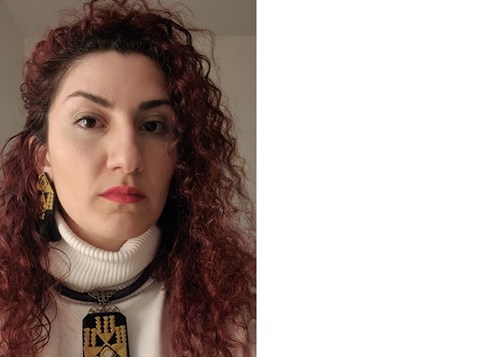
Before moving to the United States, Shahrzad Mazaheri worked professionally as a costume designer in Iran for more than seven years. She has been designing costumes for theatre, opera, and musicals in Dallas/Fort Worth area for the past three years. Among her recent national credits are Carmela, Full of Wishes at Children’s Theatre Company, MN; Sueño at Trinity Rep; A Little Less Lonely at Dallas Theatre Center, The Merit System at Teatro Dallas, and The Pleasure Trials at Amphibian Stage. Shahrzad received the 2021 Design Fellowship for Public Works Dallas. She is the recipient of TxETA 2021 Scholarship, and Bob Hope Scholarship for Excellence in Stage Design. She won the Maguire Ethics Essay Award 2021, writing about ethical issues of misrepresentation and cultural appropriation in movies and theatre. She is graduating from Southern Methodist University with her MFA in Theatre Stage Design in May 2023. She also holds an MFA in Textile and Fashion Design.
Reza Behjat is an Obie Award winner lighting designer based in New York City. He began his career in Iran — where he worked with some prominent directors for several years. In 2014, Reza moved to New York City to pursue his MFA degree at New York University — Tisch School of the Arts, where he was offered a full ride for three years. Besides more than 30 productions that he designed in Iran, his works have been shown at off-Broadway and regional theatres across the United States such as Minetta Lane, Lucille Lortel, The Public Theater, Playwrights Horizons, Atlantic Theater, The Guthrie Theater, Actors Theatre of Louisville, PlayMakers Rep, Alabama Shakespeare, and more. Reza won an Obie Award in the design category for his work on two productions of English and Wish You Were Here in 2023. In addition, alongside the cast and the creative team of English, he received a Special Citation from the Obie Award. Also, he is the winner of the prestigious award of The Knight of Illumination for Nina Simone: Four Women in 2019.
Fiksel (he/him) is a Tony Award-winning designer, composer, audio producer, and DJ working in theatre, dance, film, and audio-forward media. Besides numerous productions of Cambodian Rock Band, other projects include collaborations with Playwrights Horizons, The Public, Goodman Theatre, Steppenwolf, Chicago Shakespeare, La Jolla Playhouse, Oregon Shakespeare Festival, Victory Gardens, Albany Park Theatre Project, Audible Originals, and Make Believe Association (where he serves as the director of audio production and with whom he just released a new audio drama series “Lake Song” featured at Tribeca Audio Premieres). Film credits include original scores for Glitch, The Wise Kids, and In Memoriam. Other awards include three Lucille Lortel Awards, multiple Jeff Awards, 2020 Obie Award for Sound Design. Fiksel is on the faculty at Columbia College Chicago and is a proud member of USA and TSDCA.
Victor Vazquez, CSA, he/him, is the founder and lead casting director of X Casting in NYC. He has cast projects for Broadway (upcoming: Soul Train), off-Broadway, London’s West End, TV (upcoming: Genius: MLK/X for 20th TV, Nat Geo, Disney+), and film. He is the proud son of Mexican immigrants and Spanish is his first language.
Torange Yeghiazarian is a playwright, director, and community-builder. She is a founding member of Middle East North African Theatre Makers’ Alliance, the first national organization to serve MENA theatre makers in the U.S. Torange is the founding artistic director emeritus of Golden Thread Productions, the first American theatre company devoted to the Middle East and its global diaspora. Torange has translated plays by leading contemporary Iranian playwrights Naghmeh Samini and Mohammad Yaghoubi, directed the work of Iran’s modernist master Sadegh Hedayat, and adapted to the stage feminist poetry of Simin Behbehani and classical romance of Nizami. Publications include: New Iranian Plays, Middle Eastern American Theatre, Performing Iran, Salaam, Peace Anthology, The Drama Review, American Theatre magazine. Born in Iran and of Armenian heritage, Torange has been recognized by Theatre Bay Area, Theatre Communications Group, Cairo International Theatre Festival, and Symposium on Equity in the Entertainment Industry at Stanford University. TorangeYeghiazarian.com
Ana Bayat is a multilingual storyteller with over three decades of international experience in theatre, film, voice-over, writing, and language/dialect coaching. Ana is also the creator of the critically acclaimed show Mimi’s Suitcase (winner of the Audience Choice Award at Heidelberg’s Iranian Theatre Festival, recipient of the Neda Nobari Foundation Grant in Innovative Arts, and shortlisted for an Amnesty International Freedom of Expression Award at 70th Edinburgh Festival Fringe). Following in her father’s footsteps, Ana trained in the Stanislavski system with direct students of the master before completing further studies in speech and dramatic arts, stagecraft, language, linguistics, literature, translation, and film in the UK. Thanks to her multicultural upbringing, Ana is fluent in Spanish, UK and U.S. English, French, Persian, and proficient in German, Italian, and Catalan. Ana coached Glenn Close to speak a seamless Persian in the Apple TV+ series Tehran, and recently acted as the dialect coach and cultural and casting consultant for Studio Theatre’s production of English. anabayat.com/
Elisa Guthertz has been a stage manager in the San Francisco Bay Area for 30 years. Most recently she stage managed Remember This: The Lesson of Jan Karski and the ripple, the wave that carried me home at Berkeley Rep. Some of her many shows at American Conservatory Theater include The Headlands, Fefu and Her Friends, Toni Stone, Testmatch, Seascape, and Sweat. Other credits: Sanctuary City at Berkeley Rep and Arena Stage; A Thousand Splendid Suns at ACT, The Old Globe, and Theatre Calgary; Big Love at Long Wharf Theatre, Goodman Theatre, and Brooklyn Academy of Music; The Good Body with Eve Ensler at ACT and the Booth Theater on Broadway; The Vagina Monologues with Eve Ensler at Alcazar Theatre.
Christina Hogan returns to Berkeley Rep after working on Sanctuary City and It Can’t Happen Here. Other theatre credits include The Headlands, Fefu and Her Friends, Gloria, Top Girls, and Men on Boats (American Conservatory Theater); August Wilson’s Two Trains Running, Pass Over, Georgiana and Kitty, Skeleton Crew, and The Wolves (Marin Theatre Company); Lear (Cal Shakes); In Old Age, The Baltimore Waltz, runboyrun, and And I and Silence (Magic Theatre); and Ripped (Z Space). Hogan has a BA in theater arts from Saint Mary’s College of California. (She/her)
Assistant Director
Maria Arreola (Peter F. Sloss Artistic Fellow)
Assistant Scenic Designer
Shin Yang
Assistant Lighting Designer
Tiffany Hernandez Alberto (Lighting Fellow)
Assistant Sound Designer
Ariana Cardoza (Harry Weininger Sound Fellow)
Casting Consultants
Golden Thread Productions (Sahar Assaf)
Casting Consultation
Barzin Akhavan
Production Assistant
Calvin Friedman (Stage Management Fellow)
Stage Supervisors
Gabriel Holman · James McGregor
Deck Crew
Siobhán Slater
Wardrobe Crew
Violet Clemons (Costume Fellow)
Light Board Operator
Desiree Alcocer
Sound Board Operator
Akari Izumi
COVID Safety Manager
Kathleen Parsons
Scene Shop
Adam Clay · Carl Martin · Sean Miller · Maggie Wentworth · Zach Wziontka
Scenic Art
Neena Holzman · Maya Matthews · Tia Shank · Adeline Smith · Cayla Ray-Perry
Props
Garner Takahashi Keene · Brittany Watkins
Costumes
Breanna Bayba · Janet Conery · Nelly Flores
Lighting
Nikola Capp · Travis Clark · Jack Grable · A. Chris Hartzell · Jacob Hill · Charlie Mejia · Riley Richardson · Taylor Rivers · Matt Sykes · C. Swan-Streepy
Sound
Courtney Jean
Assistant Production Manager
Florence Gill (Production Management Fellow)
Assistant Company Manager
Emily Zhou (Company Management Fellow)
Medical consultation for Berkeley Rep provided by Agi E. Ban DC, John Carrigg MD, Cindy J. Chang MD, Christina Corey MD, Neil Claveria PT, Patricia I. Commer DPT, Brenton Dowdy DPT, Kathy Fang MD PhD, Steven Fugaro MD, Whitney R. Johnson DDS, Olivia Lang MD, Allen Ling PT, and Christina S. Wilmer OD.

Sahar Bibiyan is an Iranian-American actor who splits her time between New York and Los Angeles. Recent theatre credits include Haram Iran (Emerging Artists Theatre) and Veil’d (Astoria Performing Arts Center, world premiere). She recently appeared in Uncut Gems (A24) directed by Josh and Benny Safdie. Selected TV credits include a recurring role on Mr. Robot, Little America, Chicago Justice, and Bull. She is the voice of Dimah in the video game Just Cause 3.
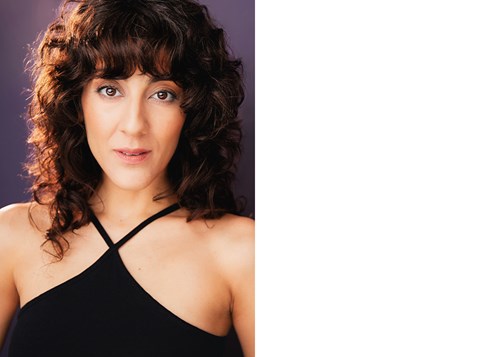
Broadway: 1776. Regional theatre: 1776 (American Repertory Theater), Twelfth Night and Appoggiatura (Denver Center for the Performing Arts), The Corpse Washer (Actors Theatre of Louiseville), You Can’t Take It with You and The Curious Incident of the Dog in the Nighttime (Indiana Repertory Theatre/Syracuse Stage), Guys and Dolls and Dirty Rotten Scoundrels (Creede Repertory Theatre). A graduate of U of N Colorado. A first generation El Salvadorian-Iranian-American, Mehry thanks her family and friends for their endless support. @mehryiris
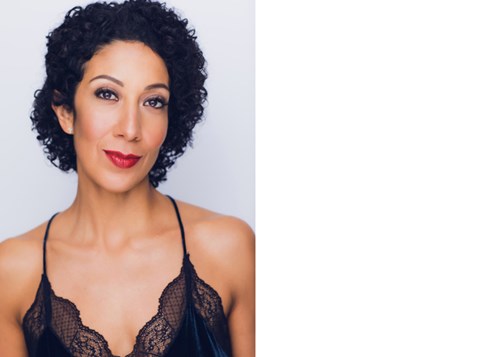
Sarah Nina Hayon is a bi-coastal actress and a three-time Drama Desk Award nominee. Passionate about new works, she has developed many works on and off Broadway. Recent theatre highlights: Richard III (The Public’s Shakespeare in the Park, Robert O’Hara), Wintertime (Berkeley Rep, Les Waters), Seascape (ACT, Pam MacKinnon, BACC nomination), Sweat (ACT, Loretta Greco), We Swim We Talk We Go to War (Golden Thread Productions, Evren Odcikin), Swimmers (MTC, Mike Donahue; TBA Award). TV/film: The Other Two, Fairyland, FBI, For Life, 13 Reasons Why, Succession, Danny DeVito’s Curmudgeons, The Surrogate. She is a proud graduate of NYU’s Tisch and a member of LAByrinth Theater Company.
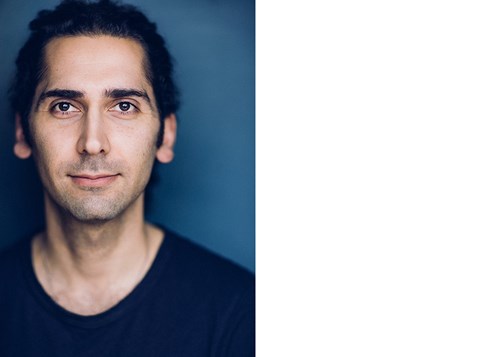
Amir Malaklou is making his Berkeley Rep debut. Broadway: The Kite Runner. Film: Viper Club, Secret in Their Eyes, Argo. TV: The Endgame (NBC), Evil (Paramount+), Major Crimes (TNT), Doubt (CBS), The Fosters (Freeform). Amir received his MFA from NYU Grad Acting.
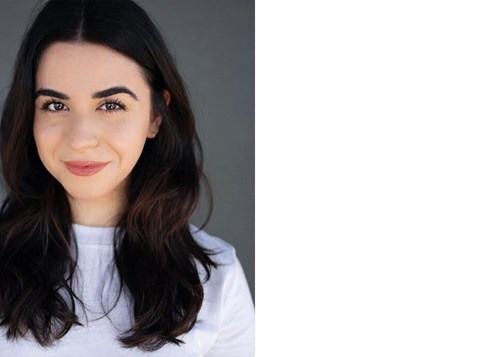
Christine Mirzayan is an Iranian-Armenian American actor from Los Angeles, California. Her select theatre credits include The Kite Runner (Broadway), Selling Kabul (Ensemble Theatre Company), and The Crucible, Sherwood: The Adventures of Robin Hood, The Christians, The Cake, My Fair Lady, Life of Galileo (PlayMakers Repertory Company.) Recent television credits: FBI (CBS). She has her MFA in Acting from UNC Chapel Hill. @christine.mirz
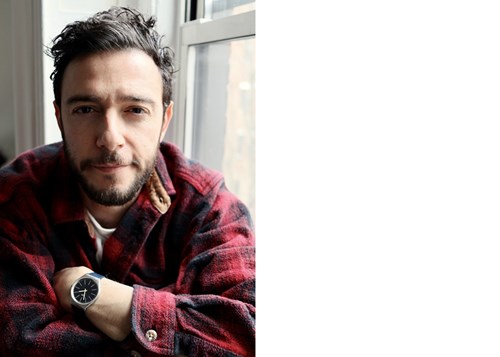
Off-Broadway: Buggy Baby (Astoria Performing Arts Center), The Vagrant Trilogy (The Public Theater, NY), English (Atlantic Theater - Obie Award winner, Lucille Lortel nomination). Regional credits include The Vagrant Trilogy (Mosaic Theater, DC), The Hour of Feeling (Humana Festival, KY). Films include Rosa (HBO), Circumstance (Sundance Audience Award). Hadi starred as Amir Al-Raisani on NBC’s The Brave. Other TV credits include Bull (CBS), Law & Order: SVU (NBC), FBI (CBS), The Blacklist (NBC). MFA in Acting from The New School for Drama. Past artistic associate for The Sundance Theater Institute. Fulbright grant recipient from Beirut, Lebanon.
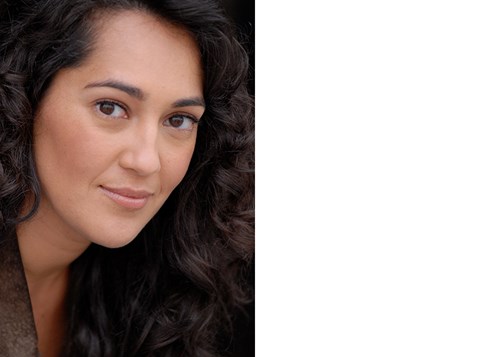
Sofia Ahmad is an Oakland-based actor, ballroom dance instructor/choreographer, and teaching artist. She is a resident artist with Golden Thread, with whom she’ll appear in ReOrient 2023 this fall. Other local acting credits include ACT, PlayGround, Word for Word, SF Shakespeare Festival, Magic Theatre, Shakespeare Santa Cruz, Pacific Repertory Theater, and Bay Area Playwrights Festival. Sofia is a graduate of NYU’s Tisch School of the Arts and a proud member of AEA and SAG-AFTRA.

Ari Deram is an LA-based, Iranian-American actress. She is thrilled to be making her professional debut at Berkeley Rep! She graduated in 2022 with her BFA in Acting from Mason Gross School of the Arts at Rutgers University. She also spent a year training at Shakespeare’s Globe in London, where she performed as Feste in Twelfth Night. Other recent credits include Inherent Resolve (Crossroads Theatre Company) and Five Times in One Night (Rutgers University). Zan Zendegi Azadi! arideram.com IG: @arideram
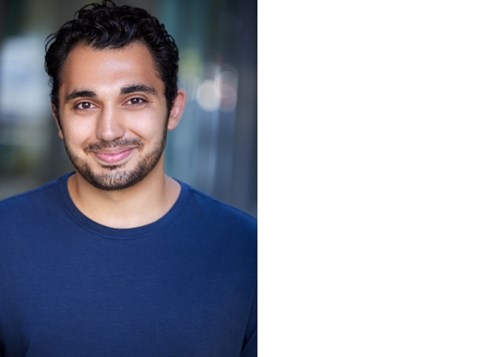
Zaya Kolia is an Assyrian, Bay Area native. He received his Bachelor of Fine Arts in Acting from the Academy of Art University, where his credits include Flan in Six Degrees of Separation, Joshua and Martin in Cloud 9, Barnett in Crimes of the Heart, Aldolpho in The Drowsy Chaperone, and Kevin Rosario in In the Heights. Other credits include Frank Jr. in Saturday Night Fever at Broadway by the Bay; The Wizard of Oz at Berkeley Playhouse; Khadim in The North Pool at Bread & Butter; The Captain in Anything Goes at Hillbarn Theatre; Ludovic and Augenti in Passion and Harry and Martin in Cloud 9, both at Custom Made Theatre Company; Azad in On the Periphery with Golden Thread and Crowded Fire; Tiny Beautiful Things at Los Altos Stage Company; and, most recently, Sky Masterson in Guys and Dolls at Peninsula Ballet Theatre. He now resides in LA, where he just participated in the Hollywood Fringe Festival and a tour of Romeo and Juliet! He most recently originated the role of Danial in the world premiere of The Language of Wild Berries. Zaya is ecstatic about this opportunity work with Berkeley Repertory Theatre and join this talented cast of English!
* Indicates a member of Actors’ Equity Association, the Union of Professional Actors and Stage Managers in the United States.
Affiliations
The director is a member of the Society of Stage Directors and Choreographers, Inc., an independent national labor union. The Scenic, Costume, Lighting, and Sound Designers in LORT Theatres are represented by United Scenic Artists Local USA-829, IATSE.
![]()
World Premiere
Presented By Atlantic Theater Company and Roundabout Theatre Company
New York City, 2022
In 2020, English received the L. Arnold Weissberger Award for Playwrighting, jointly administered by the Anna L. Weissberger Foundations and Williamstown Theatre Festival.
English is presented by arrangement with Concord Theatricals on behalf of Samuel French, Inc. concordtheatricals.com
The videotaping or making of electronic or other audio and/or visual recordings of this production and distributing recordings or streams in any medium, including the internet, is strictly prohibited, a violation of the author’s rights and actionable under United States copyright law. For more information, please visit: concordtheatricals.com/resources/protecting-artists
English sponsors
English is made possible thanks to the generous support of
Season Sponsors
Stephen & Susan Chamberlin
Bruce Golden & Michelle Mercer
Frances Hellman & Warren Breslau
Wayne Jordan & Quinn Delaney
Gisele & Kenneth F. Miller
Jack & Betty Schafer
The Strauch Kulhanjian Family
Gail & Arne Wagner
Sponsors
Christina Crowley
Robin & Rich Edwards
Associate Sponsors
Cindy J. Chang, MD & Christopher Hudson
William Espey & Margaret Hart Edwards
Helen M. Marcus
Special thanks to the Partners of English.
Steve is a retired real estate developer, and Susan a retired architect. Their main focus now is the Chamberlin Education Foundation, which focuses on K-12 education issues in the West Contra Costa Unified School District. Susan has been a season ticket holder for over 25 years.
Michelle and Bruce have been ardent supporters of Berkeley Rep since 1993, when they moved with two young children in tow to Berkeley. Their favorite evenings at Berkeley Rep were usually the discussion nights, where often friends would join them for an early dinner, an evening of great theatre, followed by a lively discussion with members of the cast. Over the past 30+ years, Michelle and Bruce have recognized Berkeley Rep’s almost singular role in the Bay Area in promoting courageous new works and nurturing innovative, diverse playwrights. According to Michelle and Bruce, “There’s never been a more vital time in our lives when the power of theatre to transform, compel, inspire, and energize has been more necessary.”
Warren and Frances are avid watchers of live theatre, which includes Berkeley Rep and an annual pilgrimage (when COVID allows) to London's West End. Having loved Berkeley Rep for years, they are thrilled to sign on as 2021/22 season sponsors. They are very proud of the cutting edge, exceptional theatre that Berkeley Rep continuously produces. Frances' day job is as Professor of Physics at UC Berkeley and Warren is a Machinist and Welder at 5th Street Machine Arts.
Betty and Jack are proud to support Berkeley Rep. Jack is a sustaining advisor of the Theatre, having served on the board for many years, and is now on the board of San Francisco Opera. He is an emeritus board chair of the San Francisco Art Institute and the Oxbow School. In San Francisco, Betty is involved with Wise Aging, a program for adults addressing the challenges of growing older. She serves on several non-profit boards. They have three daughters and eight grandchildren.
Roger Strauch is chair of The Roda Group. He has served on Berkeley Rep’s Board of Trustees for over twenty years, often as an executive member. Roger is an engineer, entrepreneur, venture capitalist, and philanthropist. He has helped build technology companies that have had public stock offerings or have been sold to global industry leaders. Currently, Roger focuses on the development of several enterprises whose products and services will mitigate the negative impact of industry on global climate change and human health. Roger serves on the boards of the Chart Industries (NYSE:GTLS); Mathematical Sciences Research Institute (MSRI); Northside Center in Harlem, NYC, a mental health service agency; and UC Berkeley's College of Engineering. He is the leader of the Mosse Art Restitution Project, a major international effort to restitute stolen art from his great step family during the Third Reich. Roger and his wife, Dr. Julie Kulhanjian, a retired pediatric infectious disease physician, have three adult children. Roger and Julie divide their time between Piedmont, CA and Martha’s Vineyard.
Gail has been a Berkeley Rep trustee for 11 years and previously served as board president. She retired from Kaiser in San Leandro where she was a hematologist and oncologist. She is the founder of Tiba Foundation (tibafoundation.org), an organization investing in community healthcare in an underprivileged district of western Kenya, in partnership with Matibabu. Arne is a retired lawyer. In his retirement, he teaches and tutors high school math part-time, and serves as treasurer for Tiba Foundation. Gail and Arne have been attending the Theatre since they were students in 1972.
Bay Area Rapid Transit (BART) is the backbone of the Bay Area transit network serving five counties throughout the region. BART’s all-electric trains make it one of the greenest and most energy-efficient transit systems in the world. We encourage our riders to visit bart.gov/welcomeback as the region continues to reopen as we safely welcome you back. To learn more about great destinations and events that are easy to get to on BART (like Berkeley Rep!), visit bart.gov/bartable. At BARTable, you can find discounts, enter sweepstakes offering fantastic prizes, and find unique and exciting things to do just a BART ride away. While you’re there, be sure to sign up for BARTable This Week, a free, weekly email filled with the latest and greatest BARTable fun!
Peet’s Coffee is proud to be the exclusive coffee of Berkeley Repertory Theatre and the namesake of Berkeley Rep’s state-of-the-art Peet’s Theatre. In 1966, Alfred Peet opened his first store on Vine and Walnut in Berkeley and Peet’s has been committed to the community ever since. Supporting Berkeley Rep’s high artistic standards and diverse programming is an extension of this mission. As the pioneer of the craft coffee movement in America, Peet’s is dedicated to smallbatch roasting, superior quality beans, freshness, and a darker roasting style that produces a rich, flavorful cup. Peet’s is locally roasted in the first LEED® Gold certified roaster in the nation.
Robin and Rich have been strong supporters of Berkeley Rep for more than 20 years when they started serving on the gala committee (on which they continue to serve). Rich was co-chair of the Narsai Toast for five years. Robin retired from active law practice as a partner of Dentons US LLP at the end of 2011 and served on Berkeley Rep’s board from 2012 to 2021. Rich retired in 1997 as a senior partner of San Francisco’s Robertson Stephens & Co., a high-tech-focused investment bank, and became a professional photographer. Both Rich and Robin have been very active as board members and fundraisers for numerous Bay Area nonprofit organizations. They now spend about half the year traveling the world by sea.
Berkeley Rep thanks its community of supporters who play a vital role in furthering our mission to create ambitious theatre that entertains and challenges its audiences, provides civic engagement, and inspires people to experience the world in new and surprising ways.
Staff and board
Artistic Director
Johanna Pfaelzer
Managing Director
Tom Parrish
ARTISTIC
Associate Artistic Director
David Mendizábal
Associate Casting Director & Artistic Associate
Karina Fox
Artists Under Commission
Todd Almond
Christina Anderson
Rafael Casal
Daveed Diggs
Dipika Guha
Richard Montoya
Nico Muhly
Lisa Peterson
Sarah Ruhl
Tori Sampson
Jack Thorne
Joe Waechter
PRODUCTION AND COMPANY MANAGEMENT
Director of Production
Audrey Hoo
Associate Production Manager
Kali Grau
Company Manager
Peter Orkiszewski
STAGE OPERATIONS
Stage Supervisor
Julia Englehorn
Associate Stage Supervisor
Gabriel Holman
Head Stage Technician
James McGregor
PROPERTIES
Properties Supervisor
Jillian A. Green
Associate Properties Supervisor
Amelia Burke-Holt
Properties Artisan
Lisa Mei Ling Fong
SCENE SHOP
Co-Technical Directors
Jim Smith
Matt Rohner
Head Carpenter
Read Tuddenham
Scene Shop Supervisor
Patrick Keene
Draftsperson
Grant Vocks
Scenic Carpenters
Faye Joseph
August Lewallen
SCENIC ART
Charge Scenic Artist
Lisa Lázár
COSTUMES
Costume Director
Maggi Yule
Draper
Star Rabinowitz
Wardrobe Supervisor
Barbara Blair
Resident Design Associate
Kiara Montgomery
ELECTRICS
Lighting Supervisor
Frederick C. Geffken
Associate Lighting Supervisor
Sarina Renteria
Senior Production Electrician
Kenneth Coté
Production Electrician
Desiree Alcocer
SOUND AND VIDEO
Sound and Video Supervisor
Lane Elms
Associate Sound and Video Supervisor
Chase Nichter
Senior Sound Engineer
Angela Don
Sound Engineer
Akari Izumi
ADMINISTRATION
General Manager
Sara Danielsen
Finance Director
Jared Hammond
Associate Managing Director
Sunshine Deffner
Executive Assistant
Kate Horton
Associate Finance Director
Katie Riemann
Bookkeeper
Alanna McFall
Payroll Administrator
Jennifer Light
Director of Human Resources and Diversity
Modesta Tamayo
DEVELOPMENT
Director of Development
Ari Lipsky
Development Consultant
Lisa Salomon
Associate Director of Development
Laura Fichtenberg
Philanthropy Officer
Andrew Maguire
Individual Giving Manager
Marcela Chacón
Special Events Manager
Elaina Guyett
Institutional Grants Manager
Kelsey Scott
Interim Institutional Gifts Manager
Cassie Newman
MARKETING AND COMMUNICATIONS
Director of Marketing and Communications
Voleine Amilcar
Marketing Consultant
Colleen Flanigan
Public Relations Consultant
Kevin Kopjak
Communications and Digital Content Director
Karen McKevitt
Senior Graphic Designer
DC Scarpelli
Video and Multimedia Content Creator
Calvin Ngu
Marketing Associate
Beatriz Hernandez
OPERATIONS
Director of Operations
Amanda Williams-O’Steen
CRM Project Manager
Destiny Askin
Web and Database Specialist
Christina Cone
Facilities Director
Mark Morrisette
Facilities Manager
Adam Johnson
Building Engineers
Kevin Pan | Thomas Tran
Building Technician
Jesus Rodriguez
Facilities Assistants
Darrel De La Rosa | Theresa Drumgoole | Wendi Lau | Sophie Li
PATRON SERVICES
Director of Patron Experience
Brian Davis
Front of House Director
Kelly Kelley
Patron Services Supervisors
Maddi Gjovik | Nina Gorham
Patron Experience Representatives
Emma Allen-Landwehr | Jessica Bates | Alicia Battle | Megan Bedig | Victoria Broach | Phoenyx Butts | Matthew Canter | Rachel Cole | Steven Cole | Julian Dion | Fillomena Franchina | Jasmine Guillot | Matthew Hayden | Latasha Hayes | Amir Heibl | Armando Herrera | Joelle Joyner-Wong | Caitlyn Lee | Jennifer Light | Leigh Nelson | Maura Oliverira | Angela Phung | Tuesday Ray | Anna Riggin | Alana Scott | Debra Selman | Sloane Sim | Isaiah Valencia | Anna Vorobyeva
Subscription Manager
Laurie Barnes
Box Office Manager
Julie Gotsch
Box Office Agents
Mikee Loria | Alanna McFall | Cassidy Milano | Dom Refuerzo | Christy Spence | Gianna Francesca Vescio
BERKELEY REP SCHOOL OF THEATRE
Director of the School of Theatre
Anthony Jackson
Associate Director
Dylan Russell
Director of Classes and Summer Programs
MaryBeth Cavanaugh
Curriculum and Educational Programs Manager
Si Mon’ Emmett
Classes and Communications Administrator
Ashley Lim
Teaching Artists
Bobby August Jr. | L.M. Bogad | Diana Brown | Nicole Bruno | Catherine Castellanos | Rebecca Castelli | Kate Cherry | Iu-Hui Chua· Jiwon Chung | Robin Dolan | Lura Dolas | Jim Edgar | Bob Ernst | Deb Eubanks | Todd Fortier | Maria Frangos | Adrian Gebhart | Nancy Gold | Gary Graves | Marvin Greene | Ben Hartley | Ramon Higuera | William Thomas Hodgson | Katya Davida | Jennifer LeBlanc | Jasmine Lew | Dave Maier | Carolyn McCandlish | Annie Obermeyer | Brennan Pickman-Thoon | Lisa Porter | Hans Probst | Kenneth Ransom | Kimiya Shokri | Joyful Simpson | James Wagner | Tracy Ward | Farin Zahedi
2022/23 BERKELEY REP FELLOWSHIPS
Bret C. Harte Artistic Fellow
Katie Stevenson
Company Management Fellow
Emily Zhou
Costumes Fellow
Violet Clemons
Education Fellow
Elizabeth Woolford
Harry Weininger Sound Fellow
Ariana Cardoza
Lighting Fellow
Tiffany Hernandez Alberto
Marketing Fellow
Caroline Mae Woodson
Multimedia Content Fellow
Muriel Steinke
Peter F. Sloss Artistic Fellow
Maria Arreola
Production Management Fellow
Flo Gill
Properties Fellow
Kristina Fosmire
Scenic Art Fellow
Kenzie Bradley
Scenic Construction Fellow
Seraphim Blount
Stage Management Fellow
Calvin Friedman
President
Emily Shanks
Vice Presidents
Chuck Fanning
Bruce Golden
Sudha Pennathur
Treasurer
William T. Espey
Secretary
Scott Haber
Chair, Governance Committee
Anne Nemer Dhanda
Chair, Audit Committee
Steven C. Wolan
Board Members
Edward D. Baker
Susan Chamberlin
David Cox
Christopher Doane
Sandra Eggers
Kerry L. Francis
Steven Goldin
Jonathan C. Logan
Melanie Maier
Henning Mathew
Juan Oldham
Tom Parrish
Johanna Pfaelzer
Allan Smith
Sherry Smith
Gail Wagner
Brian Watt
Past Presidents
Helen C. Barber
A. George Battle
Carole B. Berg
Robert W. Burt
Shih-Tso Chen
Narsai M. David
Thalia Dorwick, PhD
Nicholas M. Graves
Richard F. Hoskins
Jean Knox
Robert M. Oliver
Stewart Owen
Marjorie Randolph
Harlan M. Richter
Richard A. Rubin
Edwin C. Shiver
Roger A. Strauch
Gail Wagner
Martin Zankel
Sustaining Advisors
Rena Bransten
Diana Cohen
Robin Edwards
William Falik
David Fleishhacker
Paul T. Friedman
Jill Fugaro
Karen Galatz
David Hoffman
Richard F. Hoskins
Dugan Lamoise
Sandra R. McCandless
Helen Meyer
Peter Pervere
Marjorie Randolph
Leonard X Rosenberg
Patricia Sakai
Jack Schafer
William Schaff
Richard M. Shapiro
Michael Steinberg
Roger A. Strauch
Jean Z. Strunsky
Michael S. Strunsky
Felicia Woytak
Martin Zankel
Founding Director
Michael W. Leibert
Producing Director, 1968–83